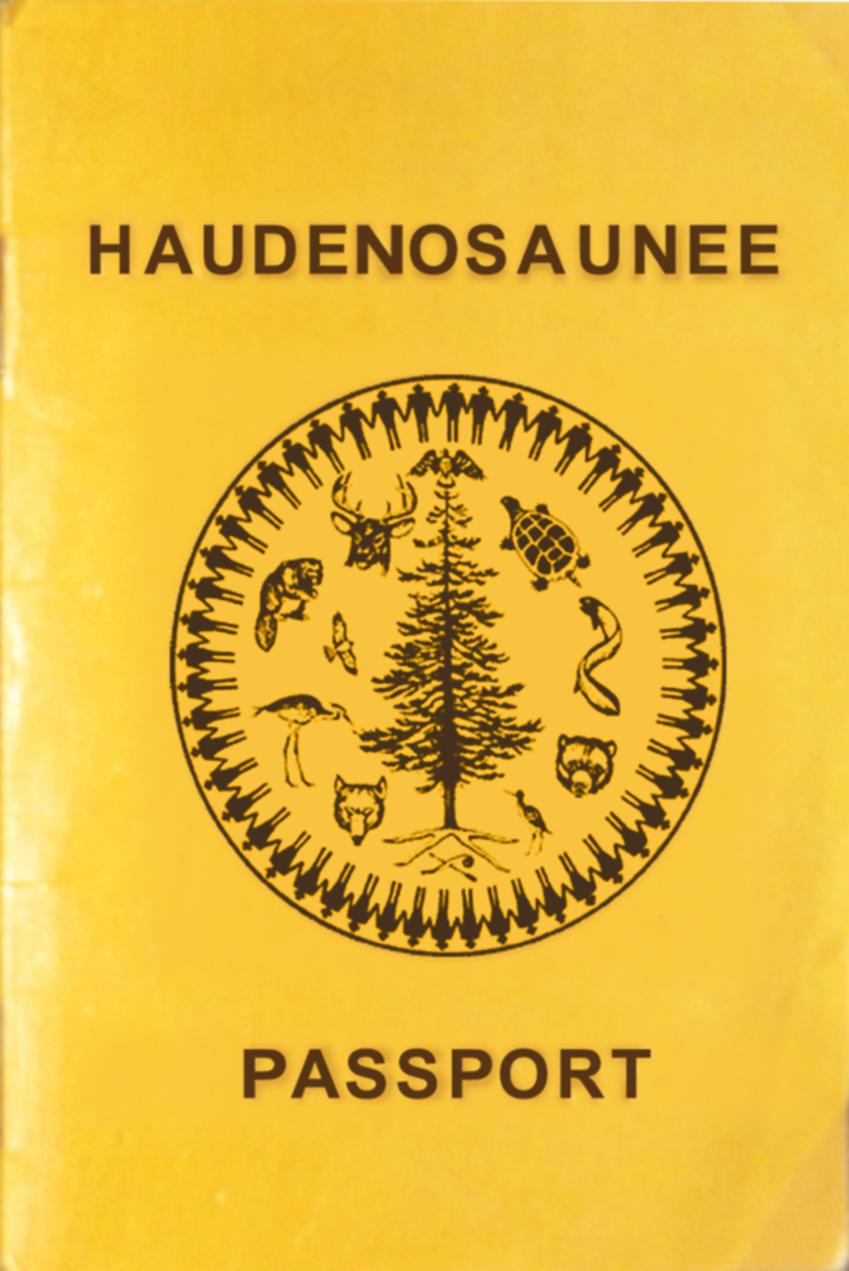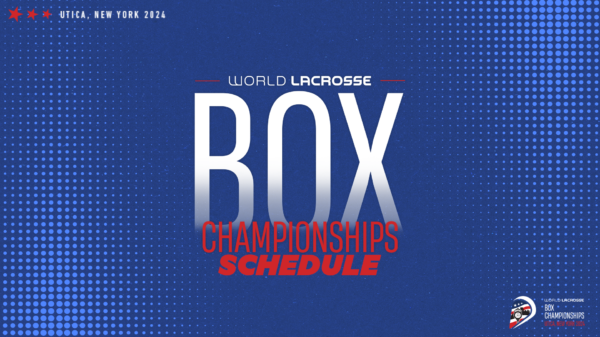Albany standout Alie Jimerson was one of the reasons the Haudenosaunee had high hopes for medaling in the FIL U19 Women’s World Championship. (Game Day Photography)
(LaxMagazine.com) Stan Cockerton would rather talk about the positive developments in international lacrosse.
Cockerton, the president of the Federation of International Lacrosse (FIL) since 2012, would rather talk about the sport’s global reach now spanning 52 nations and its march toward Olympic recognition. He would rather talk about how impressed he was by the facilities in Bangkok for the recent Asia Pacific Lacrosse Championship — where host Thailand upset Australia and nearly beat Japan — and about the buzz surrounding the record 14 teams competing in the upcoming Federation of International Lacrosse (FIL) U19 Women’s World Championship in Scotland.
But when opening ceremonies and pool play commenced Thursday, Cockerton knew there would be just as much buzz about the one team that did not make it to Edinburgh.
The Haudenosaunee U19 women’s team, which some projected as a medal contender after winning the Nike Cup earlier this month at Syracuse, withdrew from the world championship July 9 after failed negotiations with the U.K. Border Agency to allow them into Scotland on Iroquois Confederacy-issued passports. The Iroquois Nationals men’s team drew worldwide media attention for the same dispute in 2010.
“We cherish the history and culture of the Haudenosaunee as it has to do with lacrosse. And we are proud to recognize them, for our sport, as a nation,” Cockerton said. “But we’re a lacrosse body. We’re not a political body.”
When news broke of the Haudenosaunee’s withdrawal, some in social media criticized the FIL for returning to the U.K. after the impasse of 2010. England also will host the 2017 Women’s World Cup and 2018 Men’s World Championship.
“They were the only proposals that we had on the table that met the criteria,” Cockerton said, citing the costs and time commitment required of host nations to accommodate the FIL’s growing membership. “We don’t have a lot of choices.”
The FIL ultimately would like to move toward a regional qualifying model for all of its world championship events, making it more feasible for different countries to host them. But even then, there is no guarantee Iroquois players will be able to travel on their Confederacy-issued passports.
While the U.S. government recognizes the local sovereignty of tribal nations, there are limitations to their autonomy. They are considered “domestic dependent nations,” self-governing but only within U.S. borders. This designation, dating back to the 1831 Supreme Court decision in Cherokee Nation v. Georgia, allowed the U.S. to continue making treaties with tribes, including the Iroquois. Most treaties involved tribes ceding land in exchange for federal protection.
“If we get Canadian and American passports, we’re basically agreeing to be Canadian or American citizens. And by doing that, we are undermining our treaties that we have with those governments,” said Kathy Smith, chair of the Haudenosaunee women’s lacrosse board. “We can’t have treaties with ourselves.”
In many ways, the government-to-government relationship between the U.S. and tribal nations today resembles that between federal and state governments. Federally recognized tribes benefit from U.S. government funding and programs, but maintain certain laws and customs within their borders. Similar agreements exist in Canada. The six nations of the Iroquois Confederacy — Seneca, Cayuga, Onondaga, Oneida, Mohawk and Tuscarora — straddle the Canadian-American and Ontario-Quebec borders.
The European Union identifies Haudenosaunee travel documents on its list of “fantasy passports,” even though the Iroquois say they have used them to travel internationally since 1977.
The European Union identifies Haudenosaunee travel documents on its list of “fantasy passports,” even though the Iroquois say they have used them to travel internationally since 1977.
The Confederacy started issuing passports in 1923 and started traveling internationally on them in 1977. Since 1990, Confederacy-sanctioned lacrosse teams have competed in Australia, Canada, the Czech Republic, Finland, Germany, Japan and the U.S. The Iroquois Nationals played in the 1994 men’s world championship in Manchester, England — home also to the 2010 and 2018 FIL events.
“The Haudenosaunee passports we travel on — like the game of lacrosse itself which our ancestors invented — are essential to our identity as sovereign people making our way in the world community,” Oren Lyons, an Onondaga Nation chief and faithkeeper, said in 2010.
Most foreign nations do not recognize that sovereignty. The European Union has included the Haudenosaunee travel documents on its list of unacceptable “fantasy passports.” In 2010, the U.S. Department of State was willing only to issue a one-time waiver saying the Iroquois Nationals would be allowed back into the country on their passports, but the U.K. nonetheless denied their visas. In 2011, a Canadian officer confiscated a Mohawk woman’s Haudenosaunee passport as she attempted to cross the border between New York and Ontario. The Canada Border Services Agency confirmed that the passport is not on its list of acceptable identification.
Moreover, Haudenosaunee passports do not meet the requirements of the Western Hemisphere Travel Initiative, which went into effect in 2009 to strengthen border security. American and Canadian passports are embedded with a microchip that contains biometric information.
Smith knew she had an uphill battle on her hands. She instructed the U19 players to get their Haudenosaunee passports by June 2014. Initial efforts to reach the U.K. Border Agency via tournament organizers in Scotland stalled.
“In every situation, every time we’ve been successful going into a country, we’ve always had somebody on the inside who has helped to push it through,” Smith said. “We knew we needed someone in the U.K. to do that.”
Eventually, Smith’s request made it to a British Parliament representative in Edinburgh. The Haudenosaunee received a letter in January stating they could not use their passports to travel into the country or apply for visas.
“I guess I was naïve at the time just thinking, if they just knew our story, they would do something,” Smith said.
Smith’s next call was to Fern Horine, the British deputy consulate general in Toronto. Horine was supportive and helpful, Smith said, but had no power to influence the U.K. Border Agency. Smith asked if the Haudenosaunee could present driver’s licenses or Indian status cards in conjunction with their passports. The answer came back no.
Smith received a formal response from the British consulate in June, a letter that said the team could travel to Scotland with Haudenosaunee passports, but also would need Canadian or American passports to verify their identities.
“I took that as a willingness on their part to accommodate us a little bit,” she said.
But Confederacy and Iroquois Nationals leaders strongly discouraged the team from presenting any form of identification that would classify the players as Canadian or American citizens, Smith said. One chief suggested they could apply for passports, declaring they were doing so under duress and against their will. The Confederacy would not support that solution, either.
“We were between a rock and a hard place,” Smith said. “We knew that the U.K. had bent as much as they were going to. … Our board had already met and said if we don’t have the support of the Confederacy, of the Iroquois Nationals and of our people in general, then we’re not going to [Scotland]. It’s not worth it to us to undermine our sovereignty or our rights as Haudenosaunee.”
Cockerton hopes the passport dispute does not undermine the integrity of this and future world lacrosse championship events. After 2010, the FIL approved bylaws penalizing the national governing bodies of teams that withdraw late from events.
“All of lacrosse is disappointed that the Haudenosaunee under-19 team won’t be in Edinburgh, especially for the players missing out on their chance to represent their nation. They add a lot to every event they’re in not only because of the culture and history, but because of the skill level,” Cockerton said. “We’re hopeful at some point that they will be able to resolve their passport issues. The hardest part from strictly a lacrosse standpoint is the timing. From our point of view, any team, if they can’t make it for whatever reason, it would be nice if we knew six months out, so our hosts could make proper plans on ticket sales, promotions, scheduling and all the things that go into hosting a successful and rewarding event.”
Looking ahead to the 2017 Women’s World Cup in Guildford, England, Smith said she would prefer not to put a Haudenosaunee team together until they know there’s a way into the U.K.
About the FIL
The Federation of International Lacrosse (FIL) is the international governing body for men’s and women’s lacrosse. The FIL currently has 52 member nations and holds five World Championships (women’s and men’s field, women’s and men’s U19 field and men’s indoor.) The FIL is responsible for the governance and integrity of all forms of lacrosse and provides responsive and effective leadership to support the sports’ development throughout the world.






